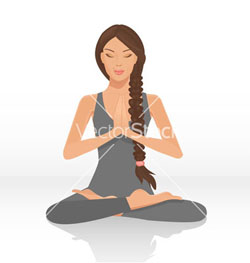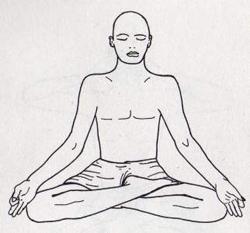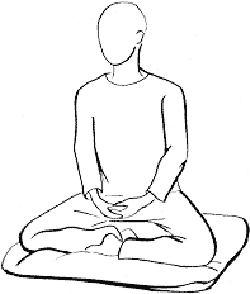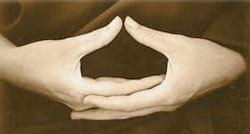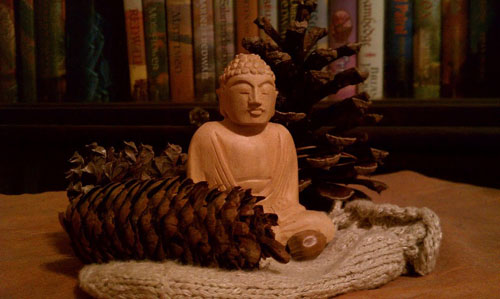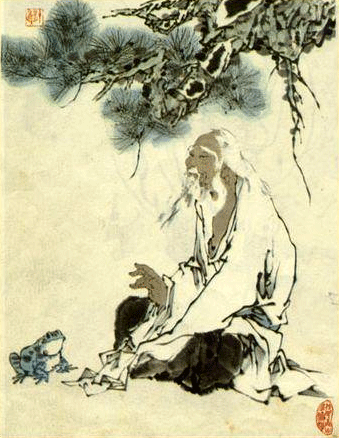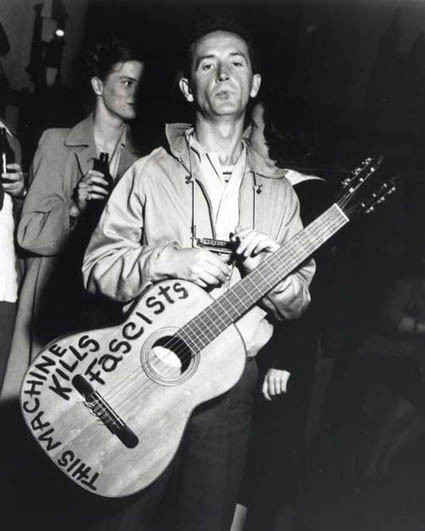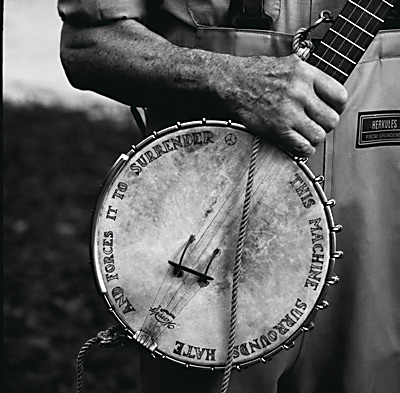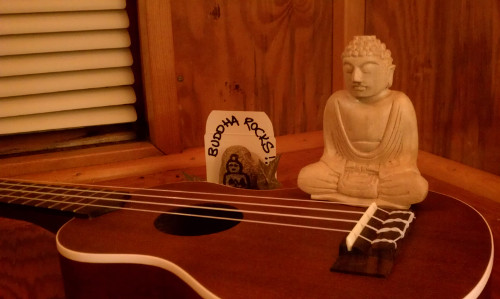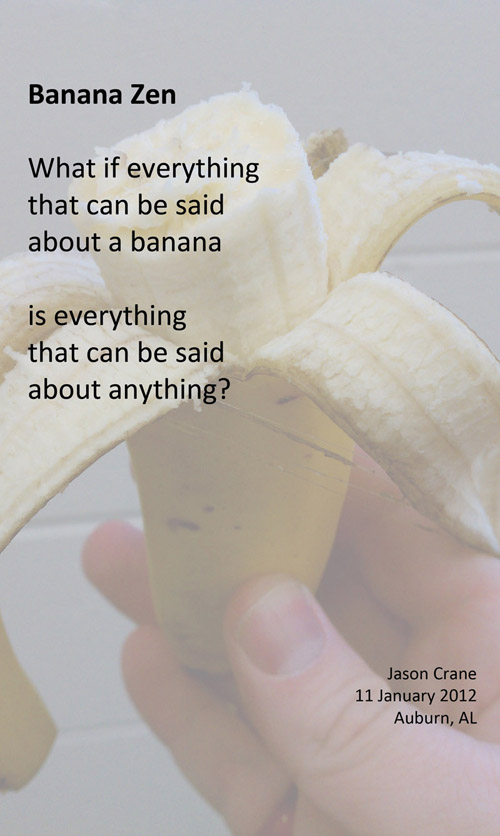
My plan for this New Year’s Eve was to travel to New York and take part in a midnight precepts ceremony at Dharma Punx NYC with my teacher, Josh Korda. I don’t have the money to do that, so I thought instead of taking the precepts with a sangha in person, I’d do it with a virtual sangha online.
The precepts might look, at first blush, like Buddhist commandments. I prefer to think of them as guidelines. There’s no punishment implied in violating them, other than the likely negative impact on your life and the lives of others.
There are many versions of the precepts, including long and complex versions for monastics. The version that resonates most with me is this list from the Rochester Zen Center, where I used to practice.
I thought it might be useful for me, as a way of setting my intentions for 2014, to go through each precept and refuge and talk about what they mean to me. Maybe it will useful for you, too.
THE THREE REFUGES
- I take refuge in Buddha. The reason Buddhism is meaningful to me is that the story of the Buddha is a story of something I, too, can achieve. It’s not a tale of magic and mysticism. It’s a practical set of actual practices that I can apply to my life. When I forget this, it helps to remember that Mr. Gautama, as he’s referred to in the Pali Canon, managed to figure it out 2,500 years ago.
- I take refuge in Dharma. The dharma is the system outlined in Buddhist texts for getting past our craving and desire. For me, a key component of this is my meditation practice, which has become a daily part of my life after years of on-again off-again dabbling. There’s a lot more to the teachings than this, but meditation is a great place to start, and it’s a practice I intend to continue.
- I take refuge in Sangha. This has always been the least regular part of my practice. Except for a few brief periods, my Buddhist practice has been a very solitary thing. Now I’m working with a teacher and feeling more connected to his sangha. I’m also going to work on gathering a meditation group of my own in 2014. Not one where I serve as a teacher, of course. Just a group of people who get together once a week to sit.
THE THREE GENERAL RESOLUTIONS
- I resolve to avoid evil. This and the next resolution are simple yet form the core of the idea of non-harming (ahimsa in Sanskrit). It’s impossible, of course, to avoid harming others, either through direct action or through the things I buy or eat or the systems I take part in. So the goal is to reduce harm as much as possible.
- I resolve to do good. For me, this is the most powerful of all these statements. “I resolve to do good” is an affirmative statement of my intention to make the world better. “The world,” in this case, could mean my life with my children, my workplace, my own mental and physical health, my community — the possibilities are endless. I feel like I’m not doing enough with my skills to make the world better, and I’d like to get better at that in 2014.
- I resolve to liberate all sentient beings. In the words of Douglas Adams, “this is, of course, impossible.” This resolution is less about a concrete thing I plan to do than a restatement of the idea that doing good has many contexts, and they don’t stop at homo sapiens.
THE TEN CARDINAL PRECEPTS
- I resolve not to kill, but to cherish all life. I’m renewing my commitment to being vegan in 2014. I became a vegan in 2010 and have stopped twice since then, once during my 2012 tour and again for the past several months. It’s time to get back to eating ethically. I also plan to continue my Stink Bug Catch And Release Program in 2014.
- I resolve not to take what is not given, but to respect the things of others. On the face of it, this means I’m not going to steal, but I don’t steal anyway. Looking deeper, it could also mean I’m going to try to use as few resources as possible, since almost all use of resources means depriving someone else of them. I could also interpret this to mean being careful of others’ feelings and being sure not to assume more of others than they’re able to give.
- I resolve not to misuse sexuality, but to be caring and responsible. I was married from the age of 22 until I was 37, and sexuality was not a big part of that. In recent years, I’ve discovered a whole new side of myself both emotionally and sexually, and with that have come pitfalls that are probably obvious to more experienced people but sure weren’t obvious to me. I’m going to stick close to this precept in 2014.
- I resolve not to lie, but to speak the truth. Another seemingly simple precept that contains worlds. In my case, I find it fairly easy to be honest with others. The trick is to be honest with myself. To speak the truth to myself about what I need and what I need to change or work on. I also plan to speak more truth to power in 2014.
- I resolve not to cause others to abuse alcohol or drugs, nor to do so myself, but to keep the mind clear. Having never had a drink or a drug in my life, I’ve also found this one a bit of a slam dunk. And I hope I haven’t driven others to drink or use drugs. I don’t think I have.
- I resolve not to speak of the faults of others, but to be understanding and sympathetic. This is a hard one. I love to gossip, even though I feel guilty while doing it. I will try to do a lot less of this in 2014.
- I resolve not to praise myself and disparage others, but to overcome my own
shortcomings. I very rarely praise myself. In fact, for the sake of my career, I should probably do it more. But seriously, I do find it easy to be critical of the world at large. I could spend more time turning a critical eye on myself. Not a disparaging eye, but one aimed at self-improvement. - I resolve not to withhold spiritual or material aid, but to give them freely when needed. I love this precept. Remembering to be such a person to my family, friends and strangers is so important. I rely on my friends for emotional support and hope to be someone they can rely on, too. The same for my kids.
- I resolve not to indulge in anger, but to practice forbearance. I don’t get angry often, but I do get annoyed or irritated at things that don’t matter at all. My meditation practice helps me avoid this and I look forward to strengthening those skills. That said, I find righteous anger a useful tool when it comes to changing the world, and I’m going to hold on to that.
- I resolve not to revile the Three Treasures (Buddha, Dharma and Sangha), but to cherish and uphold them. I’ve never been sure about who might revile the Three Treasures, and I don’t feel like it’s a trap I’m going to fall into. But the latter part, about cherishing and upholding them, feels to me like a useful closing of the circle of these precepts.
Thank you for reading this, and for helping me to live up to these ideals in 2014 and beyond. I wish you love and happiness and peace and justice. Happy New Year!
2 Comments



